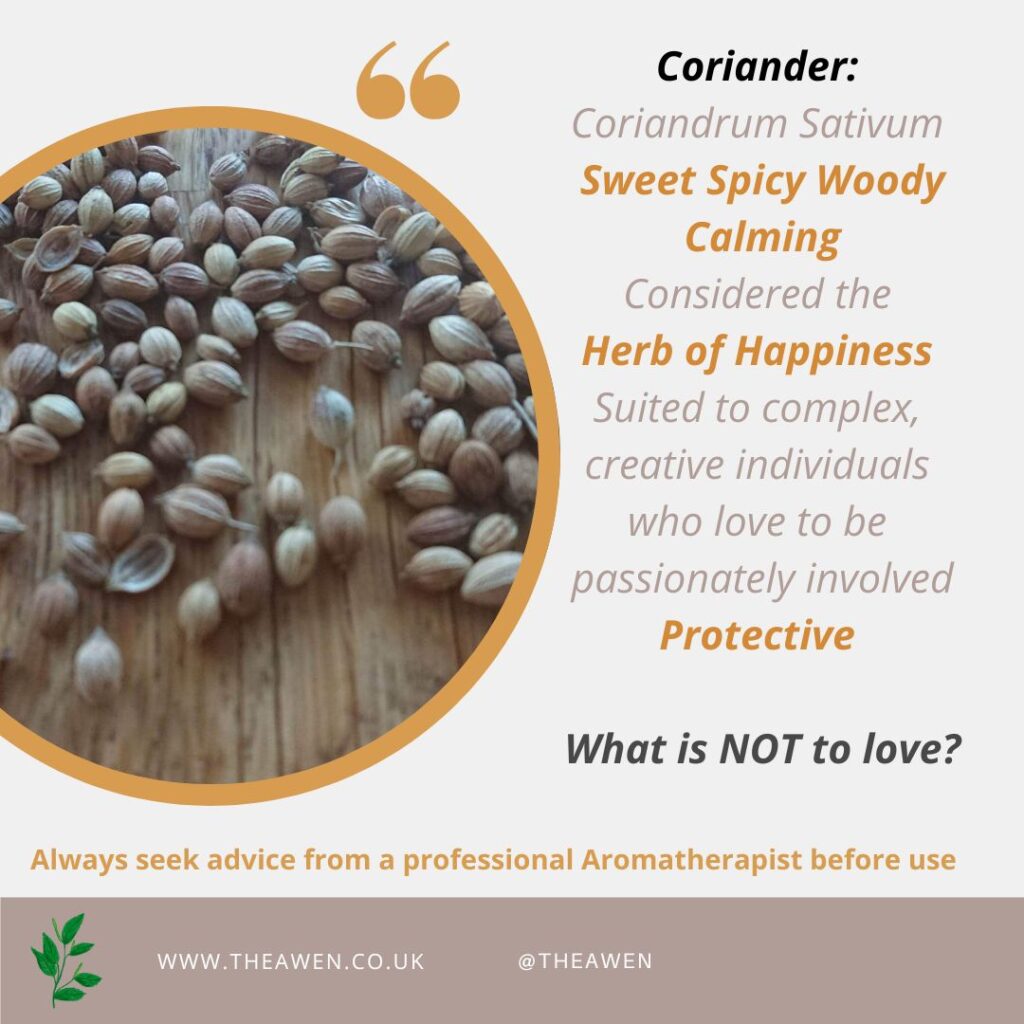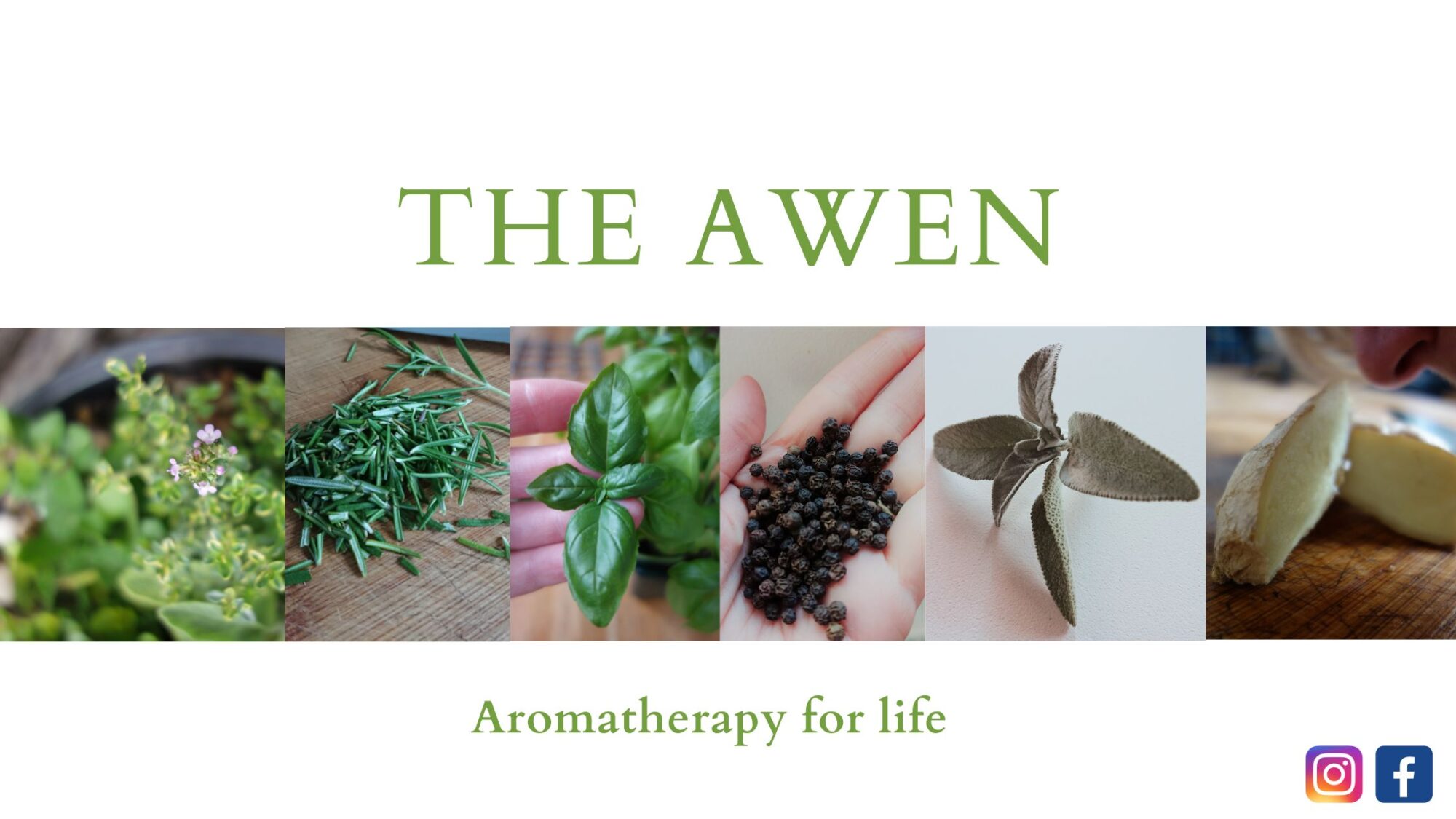
Now, first of all there are TWO essential oils from this plant – the leaf and the seed. I’m reviewing the SEED here but will do another post on the leaf soon.
Secondly, this essential oil is EVERYONE’S friend. Why do I say that? Well, it’s because it blends with everything. When I was looking at the how to blend this oil the list of ‘blends well with’ went on and on and I realised that you could use Coriander in most blends depending on the indicators and your client – or yourself, of course. Let’s not forget that you can blend for you – and what a joy this can be.
Coriander seed, whose Latin name is Coriandrum sativum, is from the Apiaceae family well known for aiding digestion. It’s a seed we are familiar with when cooking and eating Indian cuisine. You can buy the seeds to crush, or they come already ground. I love to just toss a few in whole as I love the crunch and surprise when eating a homemade curry. Spicy food can be an assault on our digestion so what better than to include an ingredient which will help with the smooth journey from mouth to execution! Indeed, this oil is good for flatulence – possibly a side effect from eating spicy food…!
Another oil from this family is Fennel, well-known to support our digestive system, therefore it makes sense in that the main therapeutic property for both these oils is carminative – mainly soothing inflammation within the digestive system, helping with issues such as indigestion, nausea, flatulence (as mentioned), spasms, bad breath, colic as well as being good for anorexia and stimulating appetites. So the suggestion here is add the seeds (bought from the supermarket/shop) to our food but use the oil to combat some of the symptoms listed. For example, combine a couple of drops of Coriander essential oil to 5ml of carrier oil (Sunflower) and rub this into your abdomen to soothe and calm. You could also add Fennel here, or floral oils such as Geranium, Rose, Jasmin creating a beautiful aroma (see the bottom of this post for advice on dilution).
Moving onto our nervous system, Coriander seed is known to help with metal fatigue, promoting confidence, bringing clarity to foggy thinking. With this in mind it would blend well with oils such as Lemon, Basil and Marjoram. If you need focus and concentration, or are putting off starting a task involving brain power, this combination could work very well. Yet Coriander can also aid sleep, soothing fear and sadness. Again, it works on your mind as much as your body. What a beautiful oil, a great friend to have when you need to cut through the chaos!
Other ways it can help are with circulation and immunity. It’s a purifier. Again, very similar to Fennel here in that it’s a diuretic, boosting our circulation and getting rid of fluids or toxins. Good for menstrual cramps and bloating which are often associated with PMS. It is good for lethargy and feelings of burn out too so put in your burner or pop a few drops in the bath if you are feeling mentally and physically exhausted and need to recover.
As indicated at the top of this post, it’s suited to complex and creative individuals, who find routine and predictability difficult, throwing ourselves (yes me…) headlong into projects without thinking first….Ah. A lovely blend here could be a grounding oil offering stability and protection: Juniper berry and Cedarwood would be perfect companions in this case.
But, like I said, it’s a perfect blend with so many oils so you can choose freely. In fact, it’s been described as a blend enhancer, pulling other oils together to create that perfect synergy. The herb of happiness indeed.
Safety advice:
Coriander is non toxic, non irritant and non sensitising so it is generally safe to use however if you do experience any reaction such as sore/red skin, or breathlessness, stop using immediately.
Dilution should be 2 drops of essential oil per 5ml of a carrier (oil, lotion, gel, etc) for the body. 1 drop of essential oil per 5ml of carrier for the face.
Do no ingest essential oils.
If you have any concerns or issues consult your doctor first. Always use a qualified Aromatherapist for treatments.

